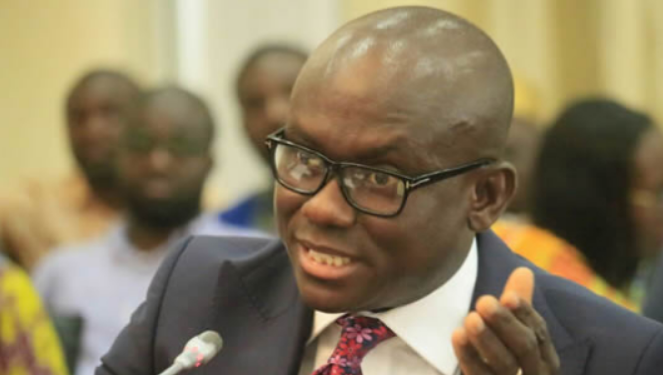Ghana’s Attorney General and Minister of Justice, Mr. Godfred Yebaoh Dame, has noted that corruption is not just limited to government officials.
He indicates that corporations, civil society, the media, civil servants, religious organizations and the so-called ordinary people are all guilty of corruption and corrupt acts.
In his address to participants at the 14th Regional Conference of Heads of Anti-Corruption Agencies in Accra, Ghana, he said: “It is perpetrated by everyone – government officials, corporations, civil society, the media, civil servants, religious organizations and the so-called ordinary people.” man. The use of sophisticated systems to circumvent procedures and facilitate the commission of crimes and other forms of inappropriate behavior contributes to the persistence of corruption in societies.”
According to him, transparency is key to eradicating corruption, bringing a litany of laws passed by the current government in this regard.
“Transparency, in my respectful view, is the basis of integrity and the eradication of corruption. President Nana Akufo-Addo’s administration in 2019, operating from the clear understanding that the haven for economic crimes is an atmosphere conducive to their concealment, and that access to information remains a vital tool in eradicating economic crimes, the spearhead is the passage of the Right to Information Act 2019 (Act 989). The law provides for the implementation of the constitutional right to information held by a public institution, in order to promote a culture of transparency and accountability in public affairs, subject to certain exceptions permitted by law and which necessary and consistent with government protection. public interest in a democratic environment,” he revealed.
He added: “There can be no doubt about the crucial role of access to information in promoting transparency and public accountability. I have increased use of the Right to Information Act by Ghanaian citizens since its entry into force, to access information from government officials. The torch of transparency has truly been lit to shine a light on the actions of public institutions and officials in Ghana. Accountability is indeed the winner.
The government of Ghana has given impetus to the whistleblowing regime by promoting a change to the whistleblowing regime in 2023 Whistleblowing Act, 2006 (Act 720). This amendment, adopted in July 2023, introduces a reward system for whistleblowers by ensuring that thirty percent of all income from cases carried out on the basis of a whistleblower’s activities is deposited into the Fund, and 10% of income generated directly generated by the whistleblowers. efforts are made to the whistleblower.
As a person with the authority to initiate and carry out the prosecution of criminal offenses in the Republic, I have come to understand that any serious effort to combat economic crimes must be firmly rooted in establishing systems for their deterrence, undertaking of smooth investigations where the same thing happens and is a good means of prosecution and punishment in a fair and efficient manner. I recognize that Ghana’s efforts to tackle corruption since President Akufo-Addo’s government took office in 2017 have included an understanding of how corruption works. This is reflected in establishing systems of deterrence, increasing investigative resources, undertaking expeditious investigations and establishing a robust vehicle for prosecution and punishment in a fair and just manner.
In this regard, the government has taken perhaps some of the boldest initiatives in the country’s history to reform the public sector and strengthen the capacity of institutions to tackle corruption. An example is the highly innovative establishment of the Office of the Special Prosecutor by law, as a body fully independent both legally and in fact, to conduct investigations and prosecutions of corruption and corruption-related crimes in public . sector”
Bomb threat sent to schools in Ahmedabad including 10 polling stations for Tuesday’s LS elections










Discussion about this post